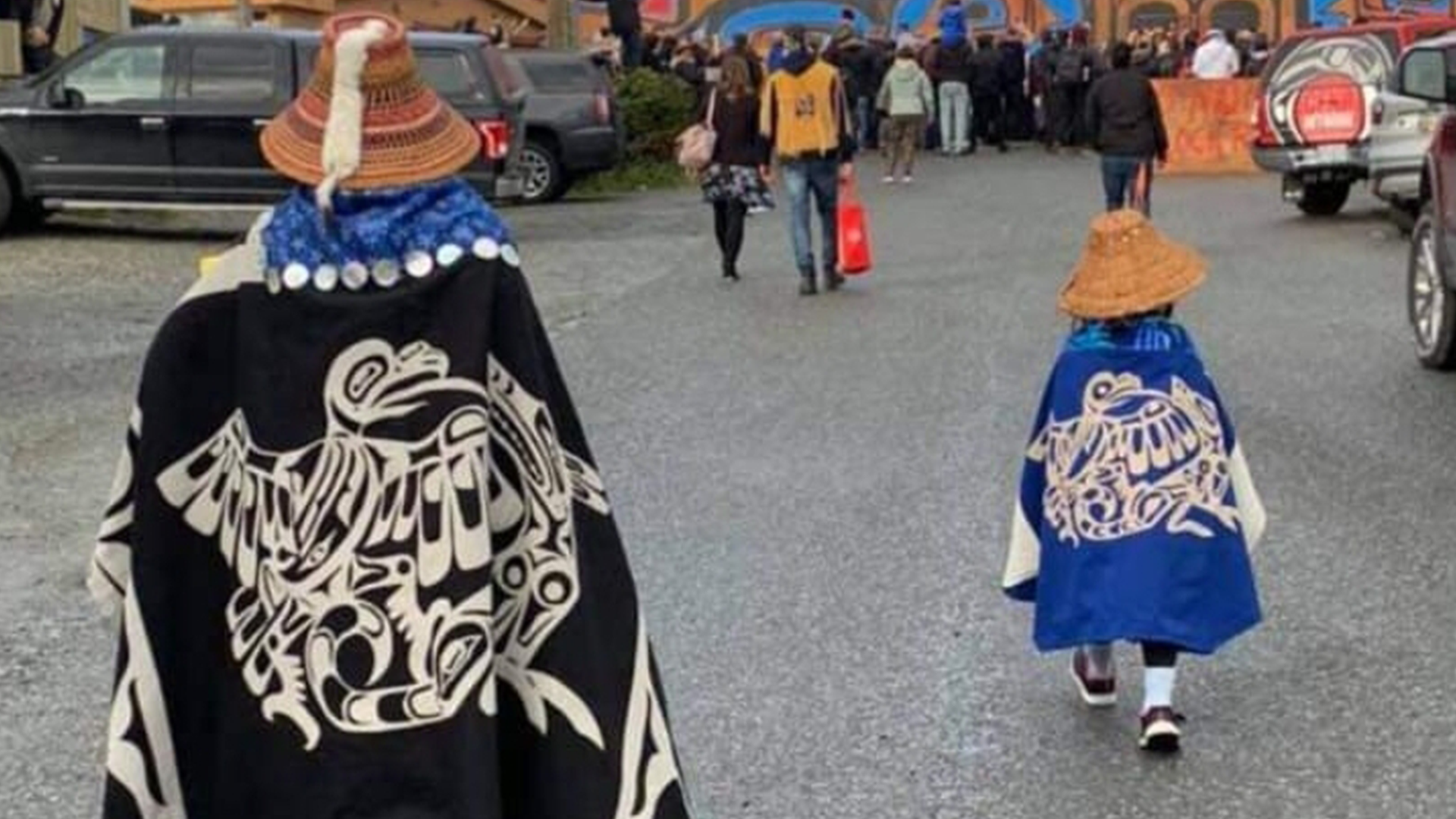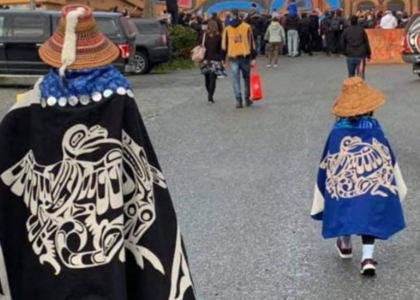Name
Hilistis
Tribal Nation
Heiltsuk
Sovereignty
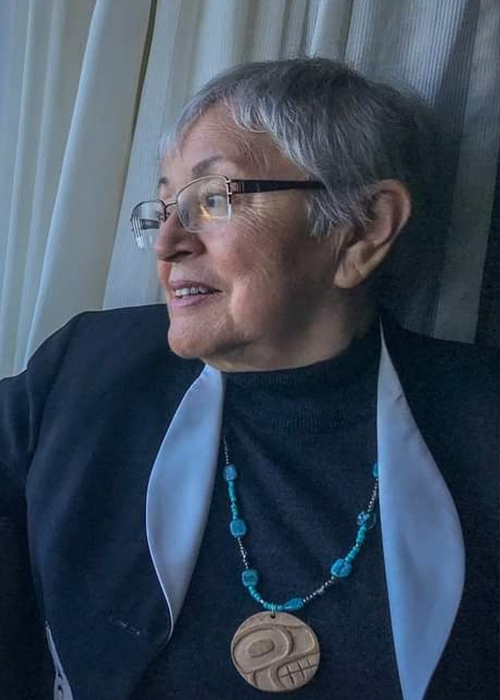
Pauline Waterfall’s life exemplifies the exercise of sovereignty as a Heiltsuk woman. The Heiltsuk Nation is comprised of 23 Indian reserves. Pauline’s is Bella Bella, located on an island on the central coast of British Columbia. Archaeological evidence affirms Heiltsuk origin stories, placing them on the island at least 14,000 years—or 700 generations ago. Pauline attended day school in Bella Bella British Columbia until the age of twelve. She was then sent away to residential school. She did not return home for 15 years. Upon doing so she rediscovered and reclaimed her Heiltsuk heritage. Pauline participated in the renewal of their potlatch system after it’s 66-year ban, reclaiming and determining her own identity. An act of sovereignty.
Pauline learned that the high school drop-out rate for her people was 98%. Attending high school at that time required going to urban schools outside of the community. Working with others, Pauline was able to establish the Bella Bella School Board in 1976, gaining local control of local education. She created Heiltsuk College which allowed Heiltsuk youth to complete high school at home and adults who had dropped out to return to their academic studies. For the first time in five generations, Pauline’s people were able to complete high school without being sent away.
The college continued successfully with an 80% high school graduation rate and 700+ alumni graduated and progressing to post-secondary or career training. Pauline then returned to her own academic goals at the age of forty-five and graduated with a Bachelor of Education from the Indigenous Teachers Education Program at the University of British Columbia. She continued as an instructor at Heiltsuk College during which time she secured grant funding to revitalize the language, hiring fluent speakers and a curriculum writer. Pauline was a fluent speaker as a child and through her college language efforts began recovering her knowledge of the language. She was supported and inspired by an elder who called her every day to speak Heiltsuk to her. Choosing to speak your own language—exercising your sovereignty.
Hilistis, Pauline’s paternal grandmother, was one of 20 children, a third-generation residential school survivor, and a powerful Heiltsuk scholar. She witnessed the erosion of the culture and language and in response created the “Hilistis Society,” and gathered elders to share their knowledge. Pauline names Hilistis as her most influential mentor. She said her grandmother guided her back to claiming her “Heiltsukness” following indoctrination and displacement from educational and religious institutions. After her grandmother passed away, Pauline inherited her name. The translation of “Hilistis” means “starting on a journey and staying on course to completion.” The giving and receiving of names is an intimate act of personal and familial sovereignty. Certainly, both name holders stayed the course in their journey as knowledge keepers and teachers.
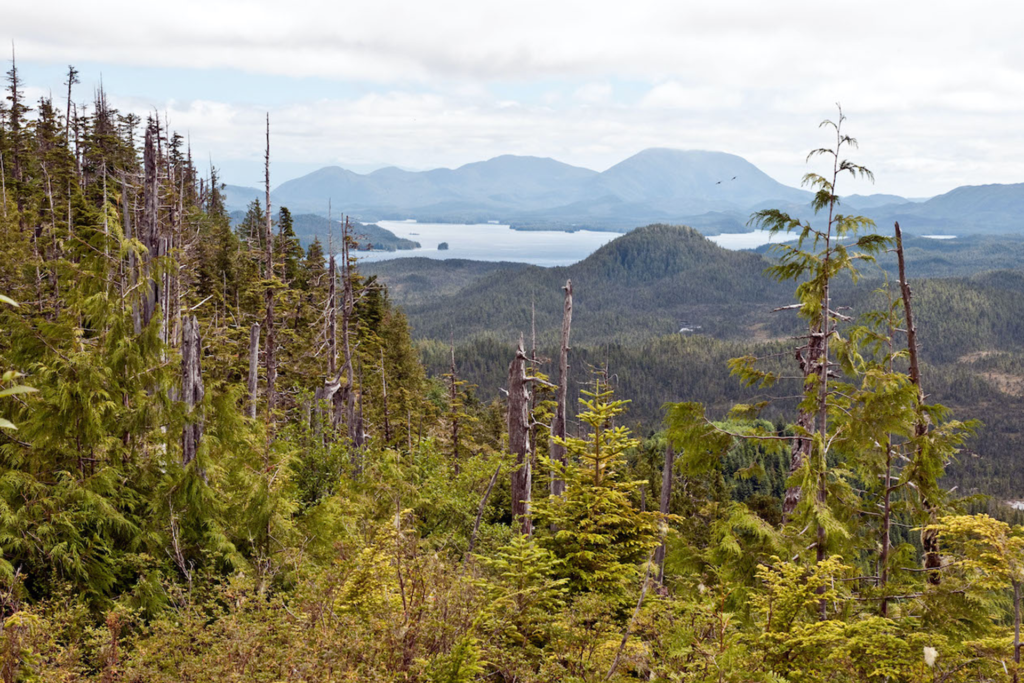
MORE INFORMATION
Writing
Lament and Hope
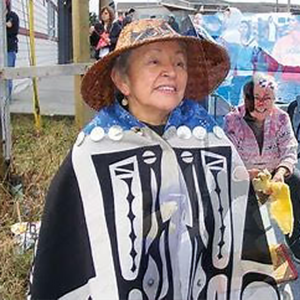 “We must hailhsistut—turn things around and make them right again. We are all worthy of being supported, loved, uplifted, carried, guided, and nurtured. We are all worthy of being reconnected to a sense of sacredness and eternal hope. For the sake of those children, we must keep going and keep rebuilding our strength and hope.”
“We must hailhsistut—turn things around and make them right again. We are all worthy of being supported, loved, uplifted, carried, guided, and nurtured. We are all worthy of being reconnected to a sense of sacredness and eternal hope. For the sake of those children, we must keep going and keep rebuilding our strength and hope.”
Video
Gviḷásdṃalas Haíɫzaqv: Building Our Constitution
History and community are the pillars upon which our new constitution is being built – for Heiltsuk, by Heiltsuk. Guided by extensive engagement and consultation with our members, this document will further enable Heiltsuk to assert our Title and Rights and communicate our values, principles, and traditional laws to the outside world. This film offers a glimpse of that process and the rich history and culture of our people.

